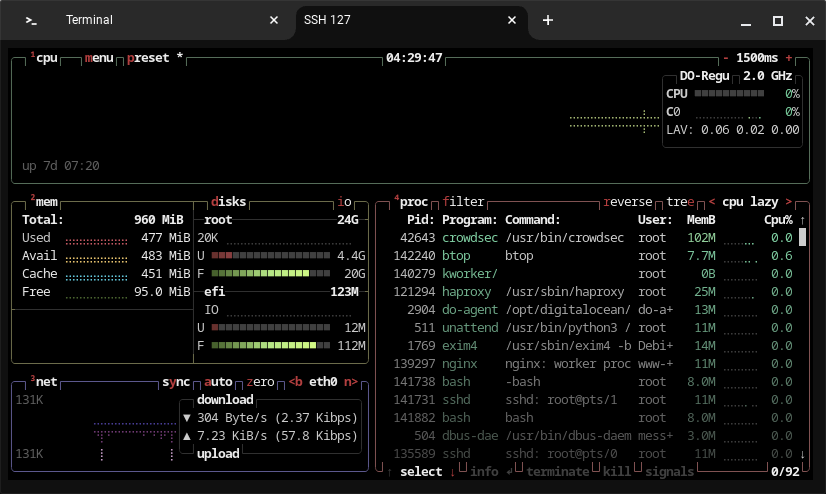I’m going to say yes as I sit here wearing a fedora tank top.
- 0 Posts
- 14 Comments

 2·1 year ago
2·1 year agoHey thanks I’m sure they will be!
I’ve been coding around 25 years and got my start in perl. I absolutely hated python when I first used it. I use it all the time now. I still prefer my curly braces but I don’t have any trouble with python or mind the whitespace anymore. I just run it through ruff every save. I do the same with go everything goes through gofumpt. I really think a lot of it is a generational thing. Older people are just used to curly brackets.
I do get peoples complaints about the packaging. Unless you’re a dev already it’s a bit extra to deal with shuffling virtual environments because the system python environments almost never work out of the box, at least in the last few distros I’ve used. Once I adjusted though it’s no problem. I run half my dev stuff in toolboxes with their own environment anyway.

 2·1 year ago
2·1 year agoAwesome thanks!

 5·1 year ago
5·1 year agoI wasn’t aware of the Github pages being free that’s neat. It is fully static (running on nginx but generated with hugo) and I use freedns.afraid.org for the domains. Good to know thanks for the tip :)

 1·1 year ago
1·1 year agoMy site is also statically generated from templates I keep in a private git repo hosted on github I keep local backups of, but I do the generating directly on the server. I just pull the site and generate it manually whenever I do an update. I like the sound of your setup better thanks for the pointers!

 2·1 year ago
2·1 year agoThanks for the tip I’ll definitely take a look! That’s not bad at all and I prefer yearly payments.

 25·1 year ago
25·1 year agoThat’s not bad at all gonna have to check it out. I host my site on digital ocean it’s on the smallest single core 1gb ram droplet. I run crowdsec and nginx and a couple other little things and it sits around 40% ram usage. Costs 6$ a month and I added 4 weeks worth of automatic weekly backups for $1.50 a month.
I can deal with $7.50 for a little static web server.
They do offer a free $200/60 day credit if you get in with one of the free Linux Foundation cloud classes which is plenty to play with.
My main OS (debian) ssd started throwing Io errors this Friday night and I had to work Saturday, only image I had laying around was Fedora Kinoite. So that’s what I’m running until I order a new drive. I’m getting my wife a new laptop soon and was considered silverblue (she’s a Mac user but very quick with tech in general).
Anyway after using it a few days, I think when I get my new drive I might just go ahead and put Kinoite on it. I’m used to running my dev stuff in containers anyway and toolbox makes it super easy. Rpm-ostree is a breeze (though it takes a minute to build on this ancient USB hdd, I’m replacing my dieing SSD with an nvme so I don’t foresee the ostree builds as being an issue).
I think immutable is absolutely the way forward, especially for less computer literate folks. It will keep them more protected and if they do mess up something the rollback is a breeze.

 2·1 year ago
2·1 year agoI saw it put really well the other day. Any software has in general a set number of bugs per lines of code. Something like Debian the number of bugs goes down after release as only bugfixes occur, while anything constantly moving like a rolling release, is certain to grow in number of bugs as the less tested newer software (which generally includes more loc) is pushed. There are tradeoffs to both methods, and edge cases of course.

 1·1 year ago
1·1 year agoI was actually working on this earlier. Look at this
https://www.digitalocean.com/community/tutorials/debugging-go-code-with-visual-studio-code
Edit: I went through the tutorial later, showed me exactly what I was looking for. Worked perfectly.
Haha I love it. c++ is definitely super useful. I never got that deep with it but I’ve certainly benefited from many things written in c++. Wrote small things and I’ve had to debug it on occasion just to get something working. It usually ended up being a compiler flag I had to set. I ended up going into web and network related stuff after college. Perl was my goto back then but I’m loving these newer languages and the thought put into some of it. For example the struct, interfaces, and type systems in go could probably replicate a lot of what you would use the classes and objects for.
I used c++ in college, and I think it’s useful to know c because so much relies on it. That said if I’m going to do something that needs performance I’ll look to go first, then rust if go isn’t a good fit, but that’s mostly because I know go better. Both are excellent languages.
If I just need something functional quick and easily I’ll turn to Python. If I need a net service quick node.js is great.


I’m stealing this 👍